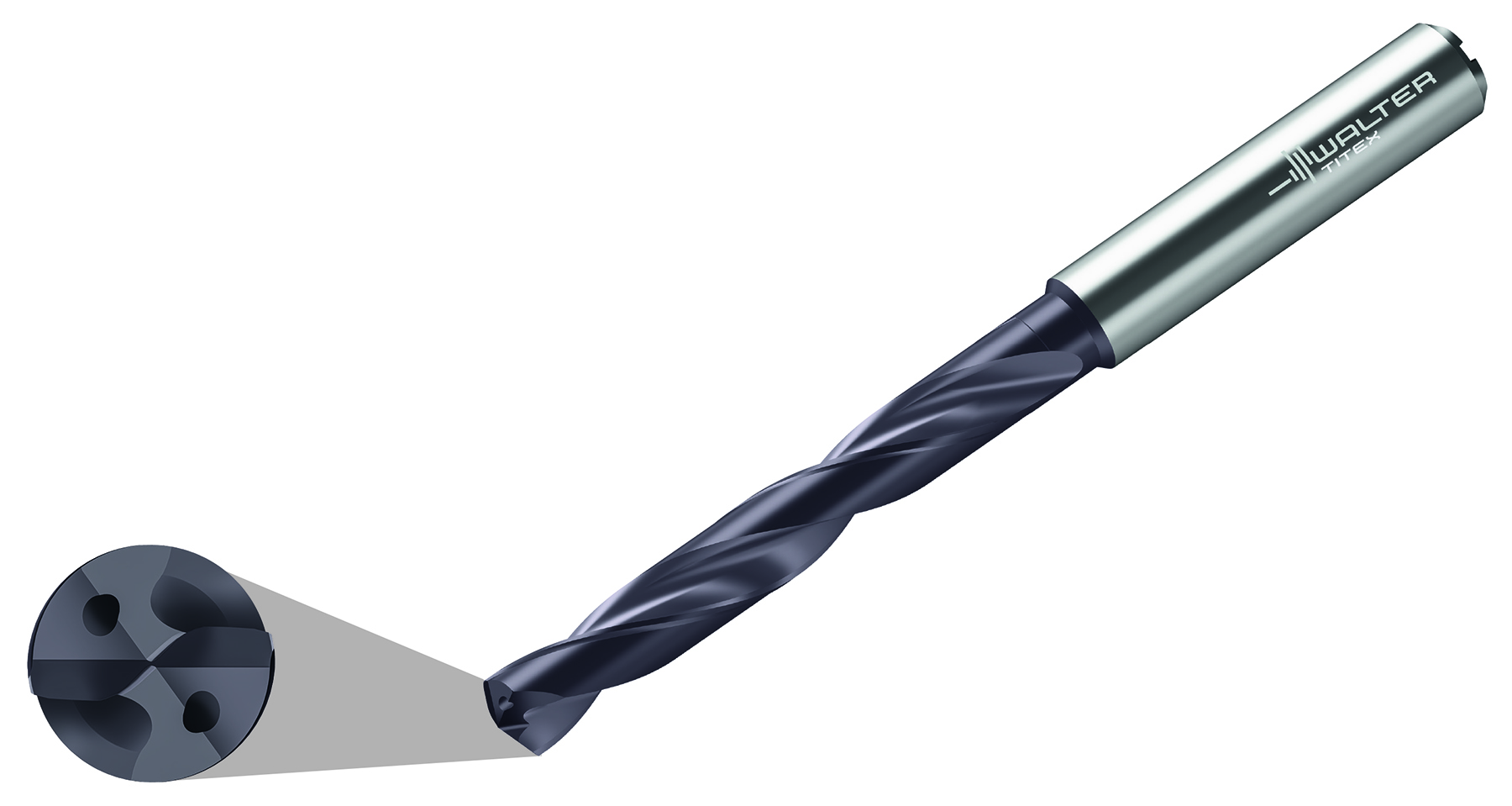DC180 Supreme
DC180 Supreme
When compared to competing drills, the DC180 Supreme has a tool life that is about 50% longer. An additional benefit for the DC180 drill is universal application at the highest cutting speeds. The drill is suitable for high production volume applications with a large number of holes, such as in the automotive industry. Other areas of use include the aerospace and energy industries, mold and die making, and general mechanical engineering.

With its new X·treme Evo Plus drill, Walter is launching a new tool in the DC180 Supreme product range. Designed to boost productivity and process reliability, the solid carbide drill with internal coolant is highly effective for drilling steels, stainless steels, cast irons, non-ferrous metals, heat-resistant super alloys and hard materials (ISO P, M, K, N, S and H workpiece groups). Being a Supreme category drill, the drill is designed not just for the highest tool life, but for the highest process parameters and productivity.
Users can achieve maximum productivity with the DC180 drill due to the Krato·tec™ aluminum titanium nitride (AlTiN) multi-layer coating technology, which was specifically developed for drills and reamers. The drill features a straight cutting edge to ensure process reliability and stability. The drill has a 140°-point angle and is suitable for holemaking with emulsion, oil or minimum quantity lubrication (MQL).
When compared to competing drills, the DC180 Supreme has a tool life that is about 50% longer. An additional benefit for the DC180 drill is universal application at the highest cutting speeds. The drill is suitable for high production volume applications with a large number of holes, such as in the automotive industry. Other areas of use include the aerospace and energy industries, mold and die making, and general mechanical engineering.
The WJ30EZ-grade drill is comprised of the K30F fine-grained carbide substrate and available in diameters from 0.118 to 0.787 in. (3 to 20 mm). The DC180 Supreme in dimensions of 3 × Dc is in accordance with the DIN 6537 short standard, and the DC180 Supreme in dimensions of 5 × Dc is in accordance with the DIN 6537 long standard. Walter Xpress specials with short delivery times (maximum of three weeks) can be ordered for drilling up to 5 × Dc, as well as in step drill styles. The tool shank is in accordance with the DIN 6535 HA standard, and the shank end is in accordance with the DIN 6909 standard.
The Walter lineup of products consists of three categories of tools. Supreme tools indicate the highest level of technology and performance available. Advance tools indicate products efficiently balanced between price and performance and Perform tools are products that provide an economical solution with focused importance on price ideal for small batch production.





